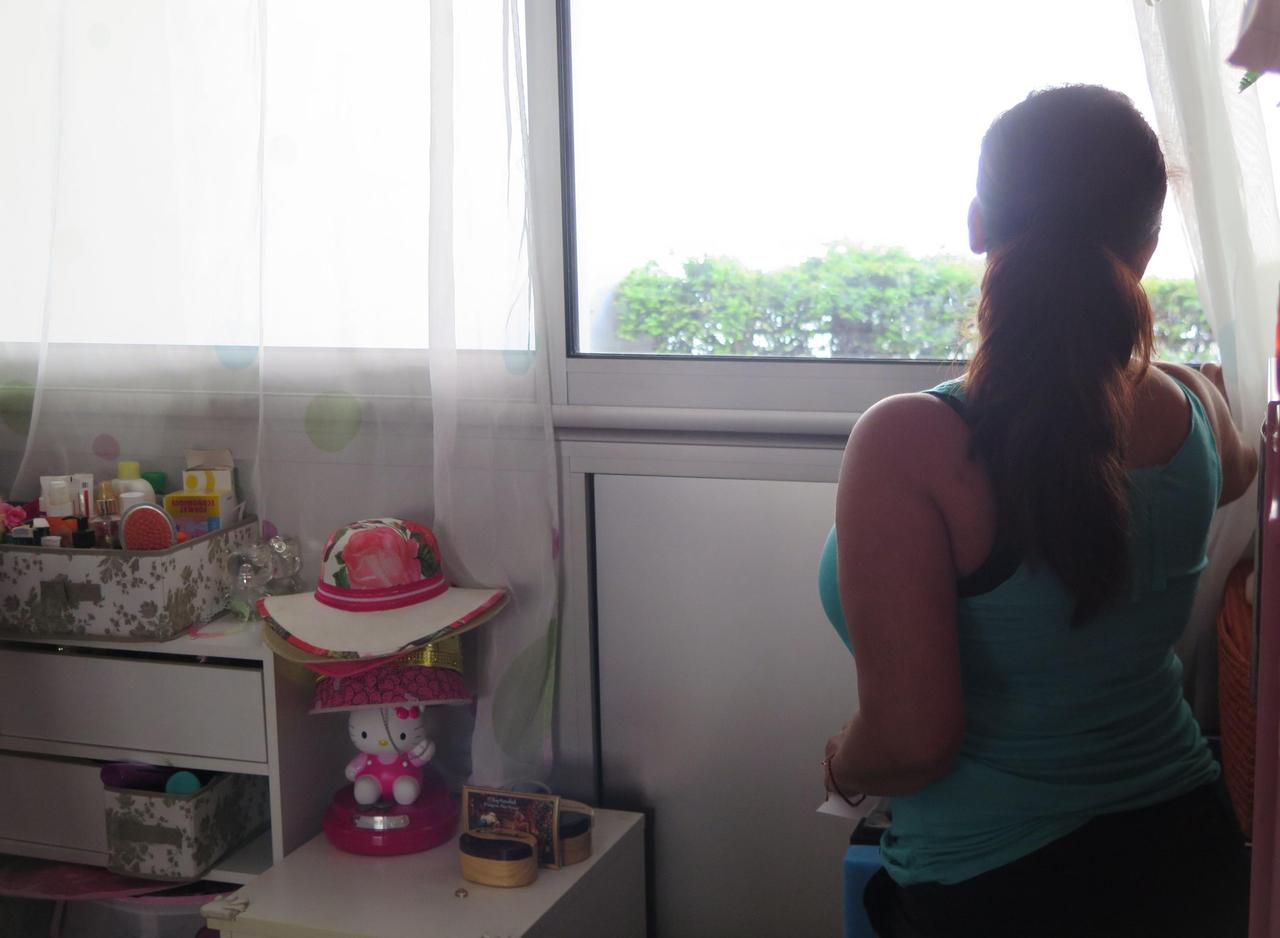With all the stuffed animals and dolls lined up, the child's room looks like a princess temple, a temple with very uncertain tomorrows. "I stopped paying the rent because of the confinement," explains Cristina (the names have been changed), the mother, "housekeeper" who pays 920 euros for around thirty square meters, semi-buried in a building of three floors in Bagnolet that we encountered after the deconfinement.
"By working on Saturdays, and with the help of the Caf, I managed to earn 1900 euros per month but with the crisis, I could not work any more," summarizes this woman who has renewed for six years a request for housing HLM.
In her building on rue de la Liberté, Cristina is not an isolated case. Her neighbor, Irena, a cleaning lady, saw income melt away with containment. No more construction sites, no more wages for her husband. "Before, two of us won around 2,500 euros, with confinement, we ended up with 900 euros," she explains. This is the price of her rent, for accommodation identical to that of Cristina. "I sell some food to neighbors and friends but it is difficult, we also help our families in Colombia," said the young pregnant woman.
Unprecedented rent strike in the private sector
Neighboring contract teachers, intermittent, associative, entrepreneur ... also stopped paying their rent, by "solidarity", demanding the suspension of the rents most in difficulty, and the decrease for other families who pay up to 2000 euros per month .
"Income = 0, Rent = 0" can be read on the large banner stretched on the balcony with the support of the association Droit au logement. "A rent strike in a private building, outside the slums, is unprecedented," insists Jean-Baptiste Eyraud, president of the Dal who in thirty years has never seen that.
According to Pierre Concialdi, researcher at IRES (the Institute for Economic and Social Research, at the service of trade unions), two million Ile-de-France residents, stricken by the drop in business income, tenants or first-time buyers are in difficulty to pay rent or mortgage loan deals. An average even higher than at the national level: 22.8% in Ile-de-France against 20% in France.
This estimate results from the crossover of data on the drop in income (35% of Ile-de-France residents) and those relating to housing (65% have fixed costs). The situation varies from one department to another. "The proportion of working people who have experienced a drop in their business income is much higher than the average in the greater suburbs (42% versus 35%)", specifies Pierre Concialdi. In terms of housing too, disparities exist: more tenants in Paris (56.2%) and in the inner suburbs (50.2%), more first-time buyers in the outer suburbs (27.5%).
"Zero euros for two months"
Eve, 40, reimburses 1600 euros each month for the house where she lives with her husband and their four children. "For two months, it's zero euros, it's zero cents," says this restaurant owner who is also worried about his twenty employees on permanent contracts. Since the confinement, the couple paid themselves cash, 2,000 euros each. Eve knows that the next four months are crucial.
Paris Newsletter
Every morning, the news of your department seen by Le ParisienI'm registering
Your email address is collected by Le Parisien to allow you to receive our news and commercial offers. Find out more
The bank has granted them a six-month moratorium on restaurant loans, but will business resume soon enough? "Everything will ensue, we will fight, but we must be allowed to open properly," urges the independent. 63% of Ile-de-France entrepreneurs experienced a total cessation of their activity during confinement and half estimated that it would return to normal more than 6 months *.
"Following the Covid 19 crisis, more than 200,000 individual borrowers benefited from an extension of deadlines, including 7,800 in Paris and 37,000 in the Paris region," notes Frédéric Guyonnet, president of the bank's national syndicate. and credit.
Worried landlord owners
Another indicator feeds concern. The SOS unpaid rents platform experienced an increase in calls during confinement: 1,438 calls in April in Ile-de-France (one third of calls from France), led by Paris and Seine-Saint-Denis. "We received calls from people we were not used to because they were not yet in arrears, and we also had landlord landlords who inquired to find help", explains Séverine Marsaleix-Régnier, director of ADIL in Seine-Saint-Denis.
In Cristina's building, food baskets circulate between neighbors and a bailiff was asked to verify the housing conditions. Lokalis, property company owner since 2019 _which did not respond to any of our requests_, indicated in early May by email to the tenants that payment terms could be studied, but that no suspension or cancellation of rents was expected.
* According to a study carried out between April 20 and May 3 by the State, the regional council, the chambers of commerce and industry of Paris Ile-de-France, the regional chamber of trades and crafts of Ile-de-France with Ey-Parthenon












